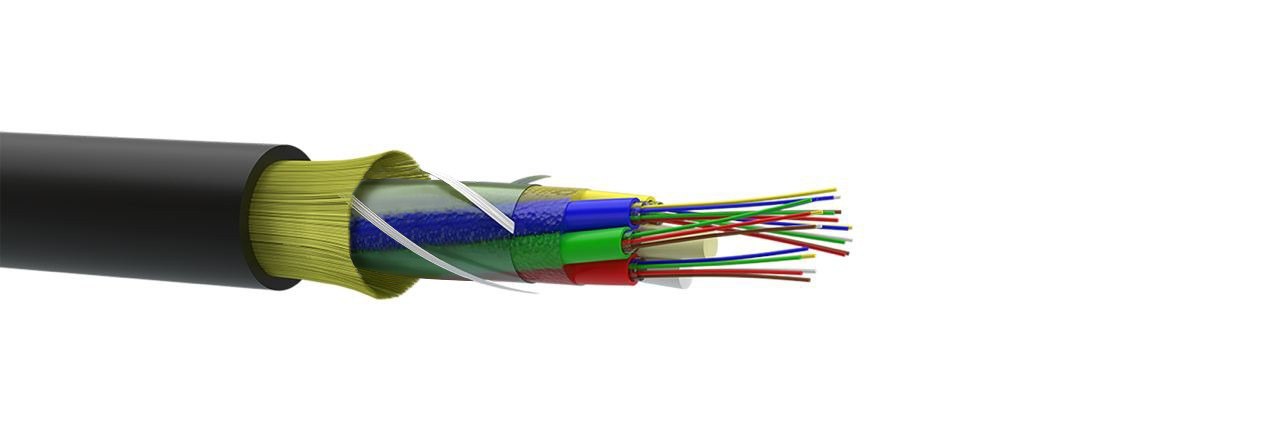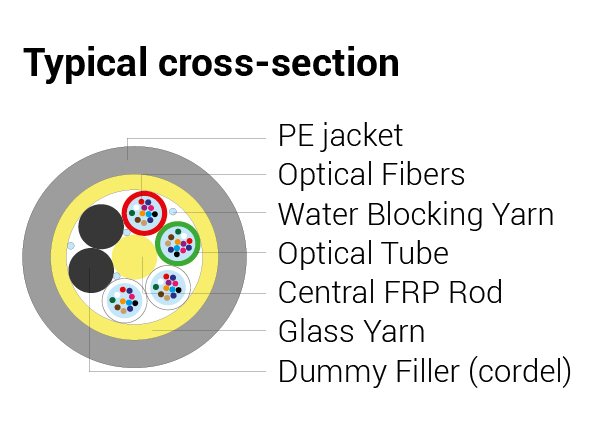The Outdoor ADSS (All-Dielectric Self-Supporting) cable, model A-DQ(ZN-GY)2Y-XTYE, is engineered for versatile installations, making it suitable for spans between telecommunication or electrical poles, city light poles, buildings, and other structures. This cable can be deployed along building walls, inside buildings, through cable ducts, pipes, or tunnels.
Cable Design
The cable features single-mode fiber 6.652 D, arranged within X tubes containing Y fibers. These tubes are filled with water-resistant gel for added protection and longevity, conforming to color coding standards per IEC 60304 – DIN VDE0888. Its outer jacket is composed of black UV-resistant polyethylene (PE), designed to withstand harsh outdoor conditions and provide sequential meter marking for easy installation.
The cable’s strength is enhanced by a central FRP (fiber-reinforced plastic) rod and glass yarn around the tubes, providing excellent structural integrity. Additional dummy fillers (cordels) contribute to the structural feel and stability of the cable.
Key Features
- Central Strength Member: A robust FRP rod and glass yarn surrounding the tubes ensure the cable maintains its form and provides excellent support.
- UV Resistant PE Jacket: The outer layer protects against sun exposure and harsh weather.
- Sequential Meter Marking: Simplifies measurement during installation.
- Water-Resistant Tubes: Gel filling within the tubes prevents moisture ingress, maintaining fiber performance.
Performance Characteristics
The cable operates reliably in a wide temperature range, from -40°C to +70°C, with installation temperatures between -5°C to +50°C. It offers:
- Minimum Bending Radius: 15 times the nominal diameter of the cable.
- Maximum Crash Resistance: 300 N/cm.
- Maximum Tension Load: 2000 N.
- Cable Length: 40.6 km per drum, with a maximum pole span distance of 70 m for regions with minimal wind and ice exposure.
Mechanical Characteristics
The cable’s robust construction makes it suitable for outdoor applications requiring high strength, durability, and resistance to environmental factors, ensuring stable performance across a range of conditions. This fiber optic cable is ideal for creating reliable telecommunications infrastructure with reduced maintenance needs.




